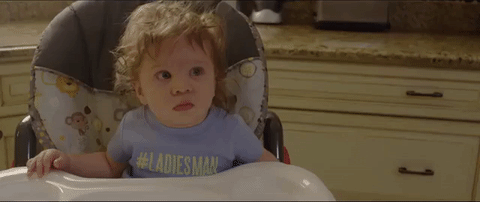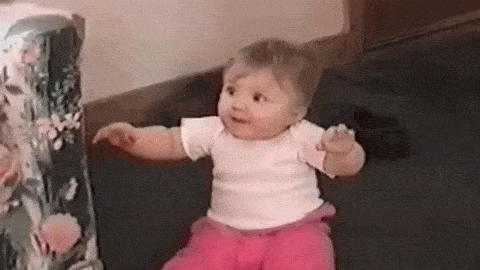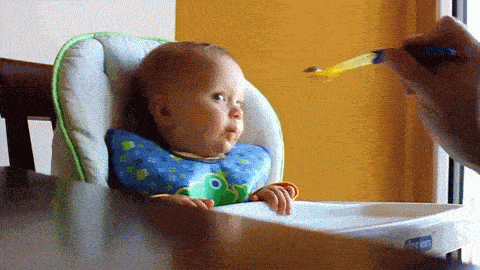8 Things You Probably NEVER Knew Babies Could Do Before 12 Months
Babies are smarter than you think.
 istock
istock She drools, speaks in gibberish, can't feed herself and takes constant naps. If you watch how your baby spends her days, you might think that she doesn't have the cognitive, social or emotional wherewithal to understand much about the world around her and the people in it.
But if you look the right way, you can see that she — like all babies — is actually focused on figuring out exactly how the world works. She is systematically analyzing the objects and people around her, making predictions, and designing experiments to test her hypotheses. When the data doesn't pan out as expected, she revises her ideas and engages in further study.
The more that scientists explore how babies interact with the world and work to learn about it, the more sophisticated infants seem to be. Read on to learn about some of their amazing abilities. You'll be surprised and more cognizant of how early developmental skills build.
1. Babies remember very early experiences.
In one landmark experiment, expecting mothers were asked to read The Cat in the Hat aloud twice a day during their last six weeks of pregnancy to their babies. Shortly after birth, these newborns showed an actual preference for this book over other children's stories. (Their preference was indicated by how strongly they sucked on pacifiers while the story was read to them.)
Even more remarkable is that these infants preferred The Cat in the Hat to other stories regardless of whether their mother or a different baby's mother recited the book.
2. Babies know right from wrong.
By six months of age, babies can make judgments about right and wrong behavior, and favor good over "bad" — just like most adults. To demonstrate these abilities, researchers had infants watch a puppet push a ball up a hill. Then a second puppet either helped or hindered the effort. Later, when given a choice, babies played more with the helper puppet — and some even pushed away the "mean" puppet.
Even infants as young as three months — who were not yet old enough to play with puppets like the older babies — spent more time looking at the nice puppet, showing that an appreciation of good and bad behavior is in place just 12 weeks after birth.
3. Babies want to be helpful.
When researchers put one-year-olds in situations where a stranger was either struggling to open a closet door with full hands or trying to pick up an object beyond reach, the babies spontaneously stopped what they were doing and tried to help. The infants would pick up the object for the stranger or try to help the person open the door.
But keep in mind there's also evidence that rewarding infants for engaging in helping behavior hinders rather than promotes future helpfulness. When older babies are given a material reward or verbal praise for helping, they become less likely to help others in the future. So think twice before your applaud your little helper.
4. Babies understand statistics.
Ten-month-olds in an experiment were shown two jars. The first jar held a 3:1 ratio of pink to black toys (12 pink and four black). The other had a 1:3 ratio (12 pink and 36 black). A researcher took one toy out of each jar, holding it so the babies couldn't see the color, and put it in an opaque cup.
Babies who had already shown a preference for the pink toys reached for the cup containing the toy from the first jar because this cup had the higher probability of having a pink toy. Turns out that babies are quite statistically savvy.
5. Babies learn from surprises.
Surprises get babies to observe closely and even attempt to figure out the unknown. This tendency is demonstrated nicely in a study where 11-month-olds were shown balls behaving in predictable as well as surprising ways. For example, babies saw a ball roll down a ramp. Sometimes it was stopped by a wall. But other times it seemed to pass right through it.
Later, the infants were more interested in exploring the "magic" ball when it had defied their expectations. What's the lesson? If you want to encourage your baby's curiosity, know that surprises aren't just for parties.
6. Babies know if you're not paying attention.
As you can see in this video, when mothers become emotionally unresponsive, infants immediately try to re-engage them with coos and smiles. But when mothers don't respond as they normally would, the infants will sob, shriek and thrust to try to get their attention. This back-and-forth reveals just how remarkably complex the emotional intelligence of infants is and the extreme powers of everyday mother-infant interaction.
7. Babies are pretty good judges of character.
You know that babies are expert imitators. But what you might not know is that infants don't imitate just anyone. Beginning around the time of their first birthday, they automatically keep track of the credibility of others and no longer mimic those they deem untrustworthy. This was demonstrated when infants were paired with adults who peeked into a box, expressed excitement, and then invited their infant partners to copy the behavior.
The thing is, the box contained a toy for some, but for others it was empty. When the same adults then tried to get the babies to copy them in another exercise, the babies were much more likely to only imitate the "trustworthy" adults.
8. Babies know a little about physics.
There are developmental psychologists who spend their days performing magic tricks for babies. They make solid objects hover in midair, go through walls and disappear only to reappear somewhere else. Amazingly, just like adults, babies tend to linger on the physics-defying scenes.
They look at them longer than scenes that are exactly the same but don't appear to violate physical laws. From this, we've learned that infants realize that objects are subject to gravity, that objects cannot move through space occupied by other objects, and that objects continue to exist when hidden.
A baby's developmental journey in just the first year of life is extraordinary. As an early childhood development company, Fisher-Price is proud to enrich the lives of young families through its products and services.
YourTango may earn an affiliate commission if you buy something through links featured in this article.





